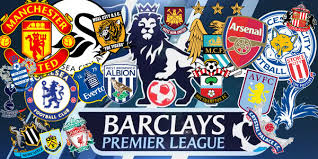By Paul Nicholson
March 27 – English Premier League clubs have agreed to share at least £1 billion of league income in the period 2016/17-2018/19. The money will be shared through the English football pyramid as well as to good causes.
The figures equates to 20% of the new UK live broadcast revenue deal – live TV rights were sold for £5.136 billion to Sky and BT for three years from 2016 – and is a 40% increase on the £700 million distributed in the previous cycle.
Critics have been quick to point out the new TV deal is a 70% increase from the previous £3 billion.
But the handout could conceivably be higher, with the Premier League wording saying “at least”. The international TV sales cycle is currently beginning for the same period.
The decision was made at the first Premier League club meeting since the UK TV deal was announced. At the meeting it was also agreed that clubs would pay the UK’s ‘living wage’ for all their permanent employees “by the start of the 2016/17 season at the latest.”
The living wage is currently set at £9.15 an hour in London and £7.85 an hour in the rest of the UK.
While continuing its practice of sharing income, the league is reacting to public and government pressure to be a good corporate citizen with its wealth. More than half the clubs in the Premier League are owned by non-English investors.
“The clubs have always stepped up to the plate when it comes to sharing their success,” Premier League Chief Executive, Richard Scudamore, said.
“They appreciate that the development of the Premier League is contingent to a high degree on continued high levels of passionate support and a vibrant football pyramid.
“These are unprecedented levels of redistribution in world sport, let alone football, which will deliver long-term progress for English football whether you are a fan, lower league club or involved in the grass roots.”
Much of the cash will go to providing parachute payments to clubs relegated from the Premier League, though the league identifies the other areas for money distribution being: Grassroots facilities; Participation – sporting and educational development of young people; Fan engagement and matchday experience; Solidarity with lower leagues; Supporting disadvantaged groups.
With current national debate being around the England team and the talent available, versus the dominance of non-English players in the Premier League, the lobby for grassroots funding will doubtless be increased – only 3% of the current discretionary distribution goes into grassroots funding.
The only potential problem to disbursing the funds is a regulatory challenge from broadcast watchdog Ofcom over the way TV rights are sold. However, the deal to share the income is a strong argument for maintaining the status quo.
Contact the writer of this story at moc.l1741273624labto1741273624ofdlr1741273624owedi1741273624sni@n1741273624osloh1741273624cin.l1741273624uap1741273624

